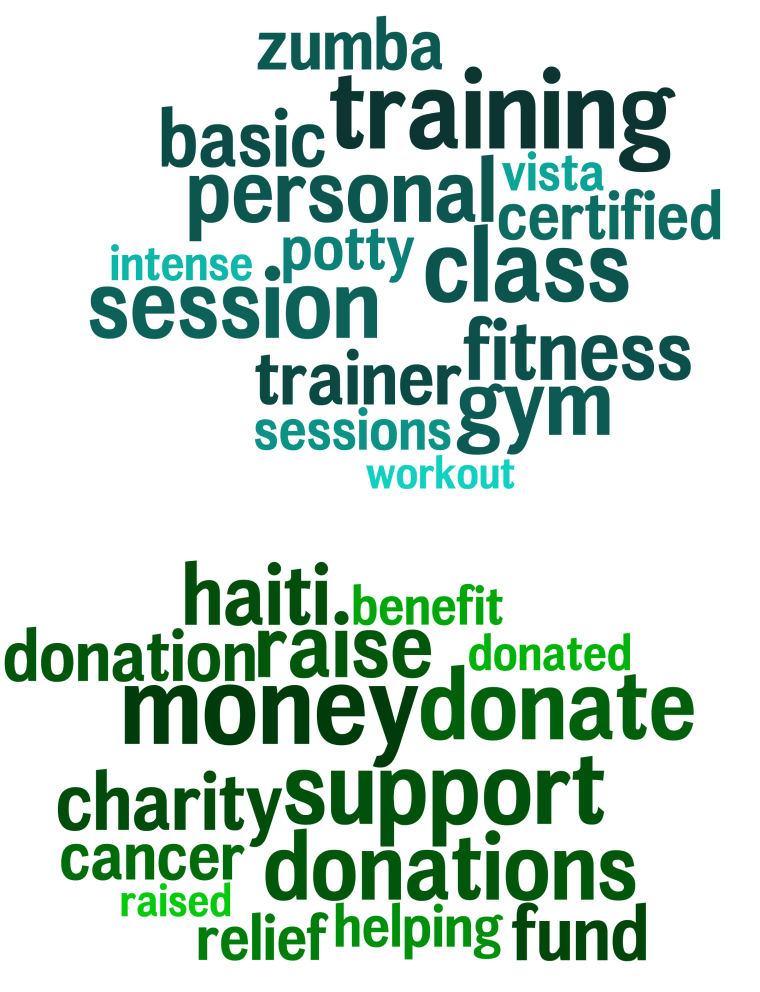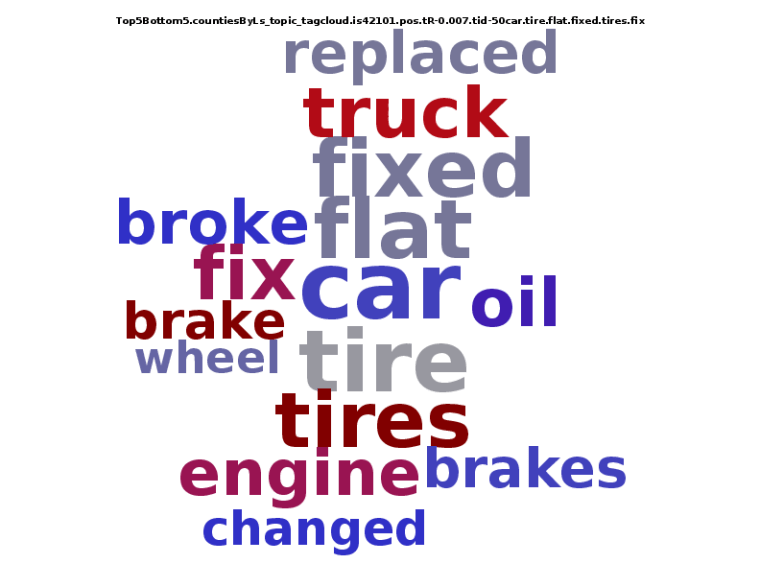"Tired. Spiritual. Zumba." These are all words that provide hints about someone's level of life satisfaction.
At least, that is what the World Well-Being Project, run by researchers at the University of Pennsylvania's Positive Psychology Center, found in a study.
From June 2009 to March 2010, they collected a billion tweets. They then mapped 82 million of them to different U.S. counties, and used local data about age, income and other factors to predict levels of "life satisfaction."
At least, that is what the World Well-Being Project, run by researchers at the University of Pennsylvania's Positive Psychology Center, found in a study.
From June 2009 to March 2010, they collected a billion tweets. They then mapped 82 million of them to different U.S. counties, and paired them with local data about age, income and other factors taken by traditional surveys.
They found that they could use social media to predict a community’s well-being. They focused on Twitter, because tweets are almost always public, but there is no reason they couldn’t work with Facebook to gain other insights into people’s level of life satisfaction.
This isn't a measure of happiness, exactly. They were looking at PERMA (Positive emotion, Engagement, Relationships, Meaning, and Accomplishment), a measure of life satisfaction created and popularized by positive psychologist Martin Seligman.
Using software, they were able to tease out words that were associated with high levels of well-being. It wasn't always as obvious as people sharing things like, "I'm so happy!" Instead, it was often words associated with actions, like hitting the gym. Here is a look at some of the top words used in happy counties:

As expected, those who were physically active scored higher levels of well-being. When it came to money, however, there were was a big surprise.
"Beyond just talking about money, talking about giving money was more predictive of happiness," Andy Schwartz, lead scientist for the World Well-Being Project, told TODAY.
Having money is good. Giving away money, for some reason, seems to be better. On the opposite side of spectrum, people who were not satisfied with their lives often used words like "tired" and "bored."

Some of the indicators of unhappiness were obvious. Others were more surprising.
"You might think the word 'play' is positive," Schwartz said. "But it's never really used in that context. It's more like playing the video or you got played."
Not that people tweet exclusively about happy or sad topics. The words might seem random until analyzed using the project's algorithms. Then, they can be paired with data from traditional surveys to predict the level of well-being for any location.
Here is a look at clusters of commonly used words in the three U.S. counties with the highest levels of life satisfaction, with positive terms in blue and negative terms in red:
1. Wasatch County, Utah

2. Douglas County, Colorado

3. Davis County, Utah

And here is a look at the three least happy counties:
1. Queens County, New York

2. Philadelphia County, Pennsylvania

3. Bronx County, New York

The power of these studies, Schwartz said, is that they allow for researchers to find connections that they weren't looking for. Correlation doesn't imply causation, meaning we don't know why people who donate their money have higher levels of well-being. But unexpected findings set the stage for other scientists to take a closer look.
"These data-driven studies can be great jumping-off points," he said.
In general, he said, they provide a pretty good glimpse of their communities, despite the fact that Twitter users tend to skew younger.
Other researchers, including Nicole Ellison of Michigan State University, are also turning to social media to study society. The data isn't perfect, she told NBC News, noting that we are "more likely to share good news or flattering photos online than we are to report our failures and share our bad hair days."
"That said, we now have the ability to capture huge datasets — data at a scale that would be incomprehensible just a few decades ago — and perform analysis on them using automated tools," she said.
What does this all mean for happiness?
Schwartz hopes that his work can be used to develop a new well-being standard to replace the economic indicators the government currently uses, like GDP.
In the future, people might be able to look up their county's life-satisfaction level, and then work together and with the government to improve local well-being.
"It's a little bit like 'Field of Dreams,'" he said of the project. "If you build it, they will come."